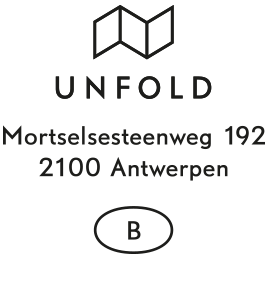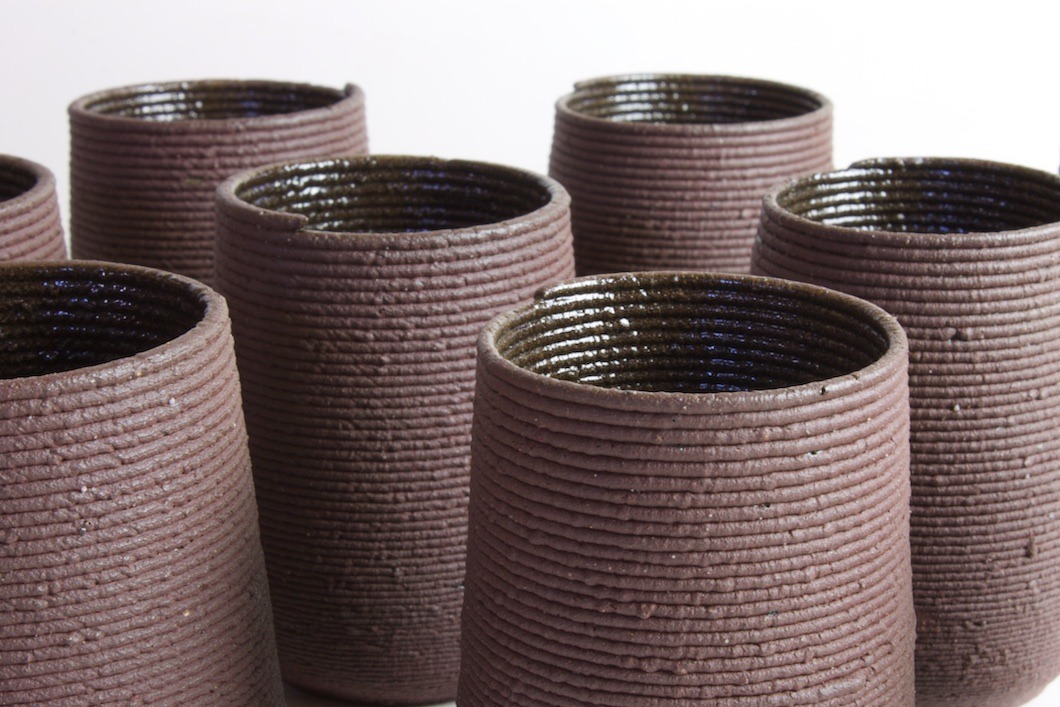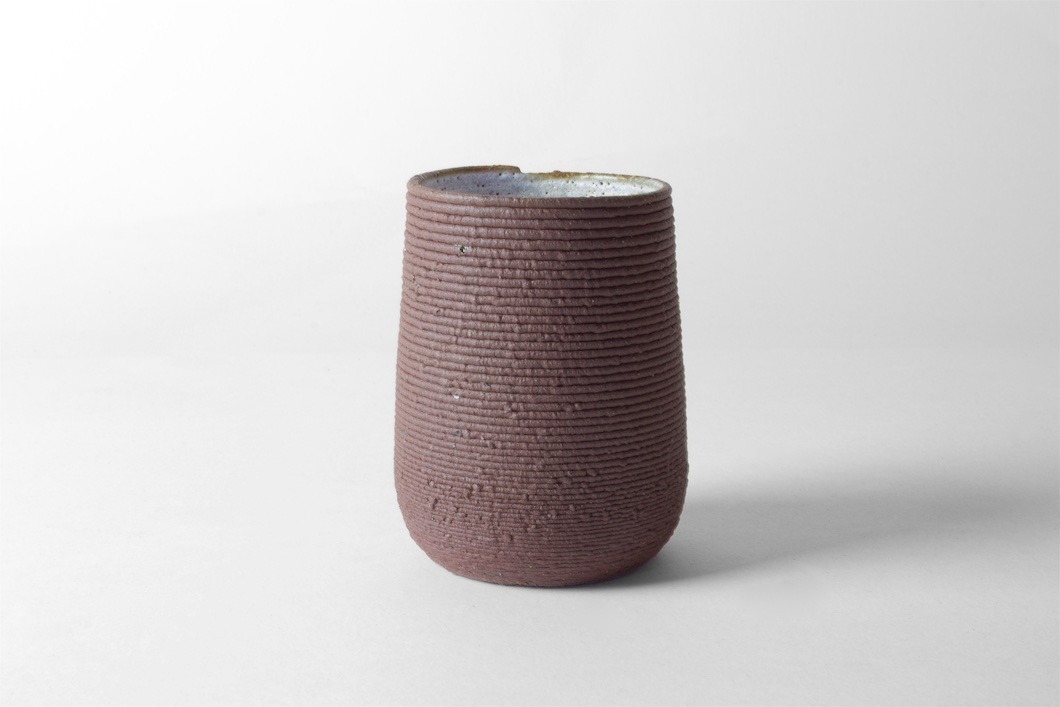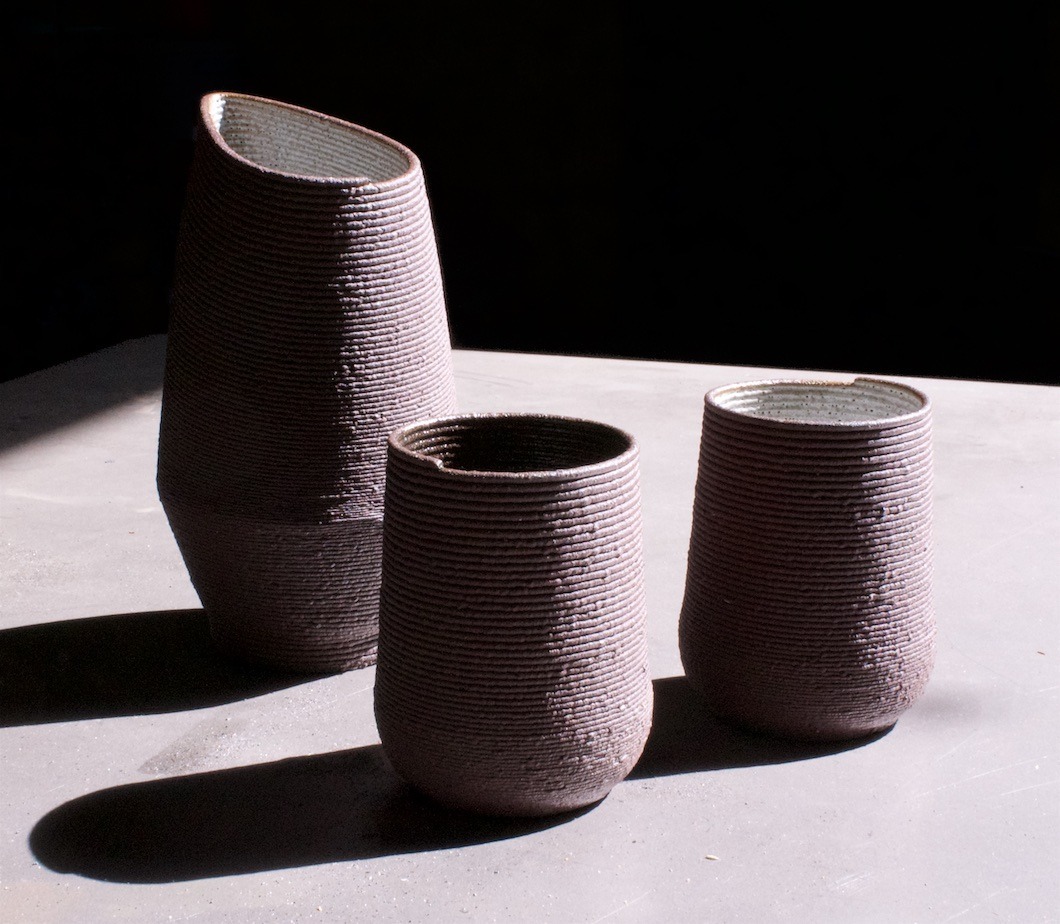During the summer of 2018, Unfold designed a cup and carafe
made from a local clay that has been used in Belgium since the 13th
century to make bricks. This clay originates from the shores of the
river Maas, and can take many colors. When firing to low
temperatures, it turns to the well-known orange brick color. But
fired to 1200 degrees Celcius or higher, it turns dark red, purple,
and almost black.
Unfold produced this tableware in the
Bokrijk open-air museum on
their ceramic printers which they
developed and
open sourced in 2009. With its thick coiled appearance, the design
is an ode to the traditional technique of coiling, a technique at
the very roots of ceramic 3D-printing. For this set Unfold
developed new software methods to break loose of the traditional
planar appearance of 3d printing where objects are build up from
equally thick horizontal stacks of lines. In the cups, the spacing
between the coils gradually increases, from 0.5 to 1mm. In the
carafe, the plane of printing changes slowly multiple times during
printing and the carafe ends with an angled spout.
This brick clay 3D-printed ware was used by the Flemish Government
as diplomatic gifts on culture and trade missions to Japan, China
and other countries.
With the support of Domain Bokrijk &
Wienerberger brick
factory Maaseik
During the summer of 2018, Unfold designed a cup and carafe
made from a local clay that has been used in Belgium since the 13th
century to make bricks. This clay originates from the shores of the
river Maas, and can take many colors. When firing to low
temperatures, it turns to the well-known orange brick color. But
fired to 1200 degrees Celcius or higher, it turns dark red, purple,
and almost black.
Unfold produced this tableware in the
Bokrijk open-air museum on
their ceramic printers which they
developed and
open sourced in 2009. With its thick coiled appearance, the design
is an ode to the traditional technique of coiling, a technique at
the very roots of ceramic 3D-printing. For this set Unfold
developed new software methods to break loose of the traditional
planar appearance of 3d printing where objects are build up from
equally thick horizontal stacks of lines. In the cups, the spacing
between the coils gradually increases, from 0.5 to 1mm. In the
carafe, the plane of printing changes slowly multiple times during
printing and the carafe ends with an angled spout.
This brick clay 3D-printed ware was used by the Flemish Government
as diplomatic gifts on culture and trade missions to Japan, China
and other countries.
With the support of Domain Bokrijk &
Wienerberger brick
factory Maaseik
 contact
contact






